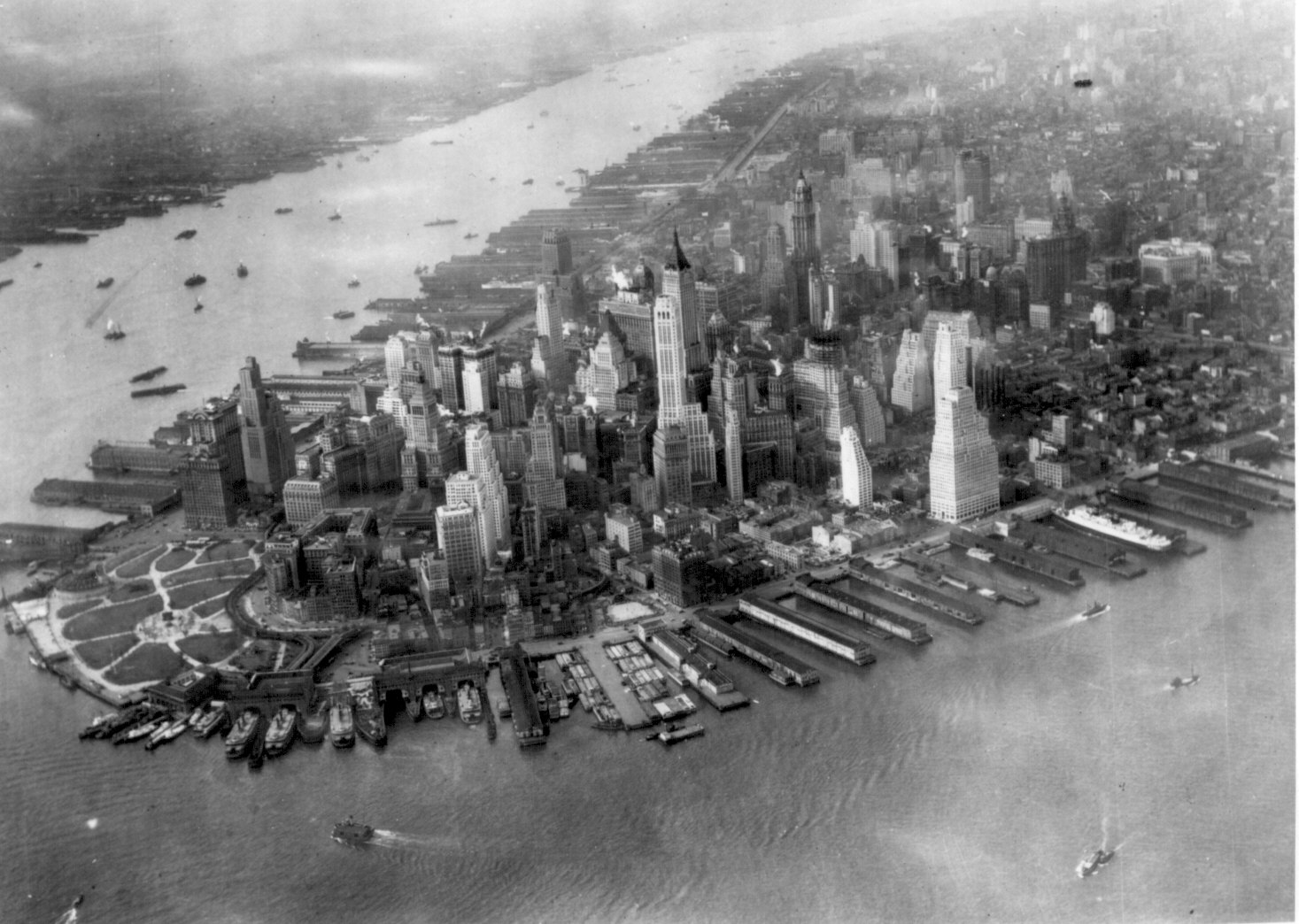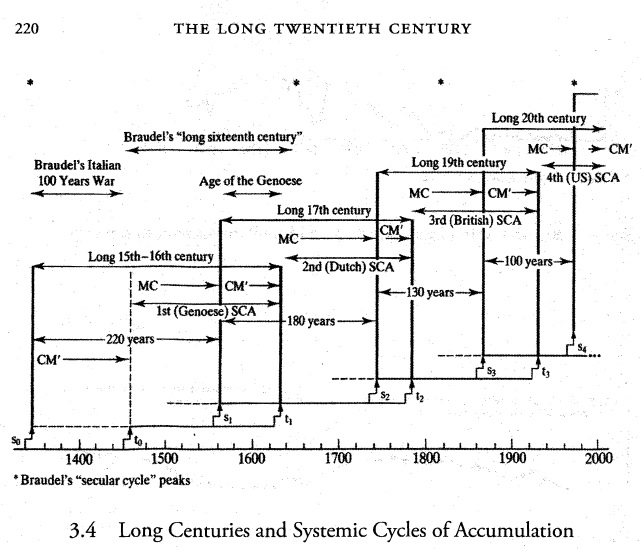This is yet another book review on my adventure in reading over the
summer. Hope you enjoy it, because I certainly enjoyed reading it (the
book that is).
There can sometimes be a lot of
debate about whether or not capitalism should be, or is, directly associated
with the state. You hear it all the time in the mainstream
media/culture: “Capitalism would be better off without government
interference.”[i]
Or, conversely, perhaps you know someone who argues that capitalism is
intrinsically linked to government. Some might even go far enough to
suggest that the government is subordinate to those in control of capitalism,
suggesting that the republic itself is a façade. A lot of this
becomes conjectured debate, where one side polemically decides that it is
sticking to its guns and not budging on the issue. With respect to the
goals and aspirations of bourgeois elitists in the late 19th
century, however, it seems quite clear how government and the interests of
capital learned to play nice.
Most narratives of labor and capital in the 19th century focus their
attention on the working-class side; its culture, its politics, and its
activism. Historians showed how proletarianization—the conscious
development of a sense of class among working class Americans—shifted against
the interests of landowning elites after 1850. In his 2001 text on the
development of class in the late 19th century, Sven Beckert focused
his attention, instead, on the elites. But it wasn’t just any
elites—which he makes clear in his preface: “The term bourgeoisie grasps more
precisely the historical formation with which I am concerned. ‘Elite,’
for example, does not sufficiently distinguish the bourgeoisie as a
fundamentally different kind of elite from other elites who have come before or
after.”[ii]
His text, The Monied Metropolis, examines the formation of the
contemporary, post-Civil War bourgeoisie in New York City—the famed “new
capital of the world.”[iii]
New York City was a fitting icon for the narrative, since much of the
post-Reconstruction boom is associated with the city’s immense commercial and
industrial growth until superseded by Chicago and Los Angeles in the
1920s. Beckert’s book provides us a unique view, however, into the
complicated world of industrial and merchant wealth in the late 19th
century to show that government involvement with capital interests was
certainly a matter of fact.
Merchant and industrial capitalists saw a major turn in the 1850s away from
conditions that allowed them to succeed in a politically fragmented
manner. Previous agreements between slave-owning elites in the South
reached conflicts as Abolitionism swept the Northern states. Karl Marx
once famously argued in a series of articles posted for the Viennese paper Die
Presse that the Civil War was the inevitable outcome of two opposing class
interests (industrial/merchant capitalists in North, slaveowners in South) both
seeking expansion of their productive systems.[iv]
The previous conflicts between industrial and merchant businessmen—primarily
over political party preferences and economic competition—quickly dissipated in
the wake of tension with the South. Beckert describes how both industrial
and merchant bourgeois elites, “which had been so sharply divided in the 1850s
and earlier, had merged into a common agenda, one centered on the matrix of
domestic industrial development.”[v]
Whereas previous generations of business and upper-middle class elitists built
separate and isolated cultural and social institutions, the bourgeoisie of New
York City build common ones that they “defined as part of a conscious effort at
stabilizing their own class.”[vi]
In order to frame their culture and impose social institutions to reflect said
culture, the late 19th century bourgeoisie had the vestige of the
State to rely on. Whatever people want to claim about the history of
laisse-faire capitalism in the United States, “capital accumulation was still
in numerous ways based on the power of local, state, and national governments:
court enforced contracts; Congress determined tariffs; the federal government
registered patents; state legislatures passed incorporation laws, build canals,
and gave railroad grants; state militias forced Indians out of western
territories; and local police enforced the social order.” Because of this
fundamental reality of late-19th century American life, many of
those in the industrial and merchant businesses—including bankers, builders,
and renters—felt “compelled to involve themselves in politics.”[vii]
As well, most revenue generated by the state in the form of taxation and
customs duties “paid for more of the operations of the federal
government.” The actions of the federal government that could be
considered breaching of states’ rights and personal liberties, such as
territorial expansion and re-districting, “depended ultimately on resources
mobilized by economic elites.”[viii]
The issues of the North with the South, however, were not the only factors in
facilitating the class consciousness of New York City’s (and thus industrial
and merchant America’s) bourgeoisie by 1897. The rise of
proletarianization and trade unionism had a particularly powerful impact.
Previously, industrial and merchant businessmen were tolerate of unions to the
extent that they created a sense of agency among workers and allowed for
production to continue. However, “a pattern of downturns shook the
economy violently in frequent intervals during the 1870s, 1880s, and
1890s.” Persistent workplace struggles and an increasingly vibrant labor
movement directed attention toward the political sphere. Many working
Americans and even small businesses felt that “the spreading dependence on wage
work…threatened the very foundations of a republic of small producers.”[ix]
By the 1880s, “the economic and political power of bourgeois Americans remained
illegitimate in the eyes of many citizens.”[x]
Further consolidation of political power, clearly, was not in the best
interests of the economic elite.
Previously,
political power laid in the hands of landownership and its appropriation, along
with the enterprises of the nation’s oldest banks. Documented from a multitude of schools
including political economy, Marxism, the Annals School, and philosophy in
general, the shift in the 1850s coincided with the aspiring political ascendancy
of the labor movement. Merchant and
industrial leaders were keenly aware of the profound resistance to political
power when it became antithetical to the needs and pressures of the broad
citizen base. Beckert shows how, in a
unsuspecting fashion, the New York City bourgeois elite found ways to pander
down middle-paths which “historians have called ‘progressivism.” The result was a relationship between society
and the state that was “significantly reshaped,” and fostered the booming
development of “a new foreign policy” directed at finding “new ways of
legitimizing a corporate economic order.”
The bourgeoisie, in other words, were conscious of the risks they took
when engaging with politics, and acting accordingly to both shroud their
involvement while remaining directly involved in political affairs.
In their attempt to legitimize their role in American society while avoiding
direct attention—since part of Beckert’s thesis is that the bourgeoisie never
desired to be portrayed as a uniform or unified class—the industrial and
merchant bourgeoisie of New York formed new “preferences rooted in an awareness
of the systemic nature of the crisis.” It was this specific
reorientation—this new cultural and social identity—that Beckert claims
“reshap[ed] modern America.”[xi] The overall goal was to reinforce the notion of 'supply and demand' as 'natural functions' of a society, similar to scientific laws that dictated the physical realm. Everything from wages to job availability was considered to be the almighty result of entrenched economic laws; and consideration for how these laws were both facilitated and encouraged in society were ignored.
And indeed, it worked. The bourgeoisie emerged more politically and economically
intelligent, and by 1890 saw its first major success with the Sherman Antitrust
Act and the 1889 New Jersey Incorporation law. Both laws, pushed and
financially backed by New York’s bourgeoisie, “established and legitimized the
corporation as a form of business organization that would internalize markets
and diminish competition, thus adding to economic stability.” By the time
the Federal Reserve came around, the city’s economic elite established “greater
federal regulation of the banking industry.”[xii]
Beckert’s book begs us to question why we even bother wondering about
laisse-faire capitalism—as though the history of the world’s most successful
economic elite doesn’t spell it out for us? In Beckert’s own words,
“behind the camouflage of familiarity lurks the history of a social class that
can be identified an observed in action, a class that had developed a
distinctive sense of itself by the end of the nineteenth century, and that was
able to mobilize on that basis.” It was specifically the actions of the
late 19th century bourgeoisie—“their access to capital, their
ability to forge dense social networks, their influence on the state, their
capacity to formulate ideas explaining the world to themselves and others have
stamped the lives of all Americans”—that defined them as a class. We
can’t pretend that these individuals believed in the success of business on the
platform of idealistic free-market capitalism—they purposefully engaged with
the state and society at large with an over-arching goal of curbing social
development into their favor. This is a powerful thing to consider when
discussion contemporary and historical political economy; thankfully
Beckert’s analysis sets a high-bar standard.
[i] http://www.foxnews.com/opinion/2012/05/29/truth-about-capitalism-government-and-fairness.html
(Paraphrase)
[iv] Karl
Marx. "The North American Civil War," Die Presse
(October 25, 1861) www.marxists.org/archive/marx/works/1861/10/25.htm
(accessed September 27, 2013)




